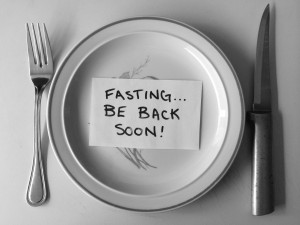 Water is vital for so many different processes in the body, which would makes sense seen as how we are made of mostly water. When not adequately hydrated, one can experience such “side effects” as muscle cramps, headaches, low blood pressure, dizziness, constipation, poor concentration, etc. On average, an individual should consume 2 liters per day of water. This can be challenging for those on the go or with busy schedules. There are many great apps available to help individuals keep motivated to increase water intake, but in addition to those apps, this blog might have some tips and tricks to help you increase your water intake.
Water is vital for so many different processes in the body, which would makes sense seen as how we are made of mostly water. When not adequately hydrated, one can experience such “side effects” as muscle cramps, headaches, low blood pressure, dizziness, constipation, poor concentration, etc. On average, an individual should consume 2 liters per day of water. This can be challenging for those on the go or with busy schedules. There are many great apps available to help individuals keep motivated to increase water intake, but in addition to those apps, this blog might have some tips and tricks to help you increase your water intake.
- Start every day with a large glass of water.
When you very first wake up, have a bottle/glass of water waiting for you. When you go to sleep, you make be depriving yourself of water for 6-8 hours per night. By hydrating yourself when you first get up, you can help your body to bounce back from this deficit and come closer to reaching your daily water intake goal.
- Have a glass of water before each meal.
For certain individuals with particular medical conditions, this may not be the best idea. However, for some this can provide a great way to increase your water intake and to help you feel fuller and decrease your portions at meal – time.
- Following having a coffee, alcoholic beverage, or caffeinated tea, have a glass of water.
All of these beverages can dehydrate the body, so by consuming water with them, it is hoped that this would balance out the dehydrating effects of them.
- Carry a reusable water bottle with you – at work and play.
Making water more readily available can help to encourage adequate water intake, and make water more readily available.
- Have a drink of water every time you have a break or get up from your desk.
Having water at these various occasions and making a habit of it can help you get closer to your goal and help you to regain your concentration for the next bout of work that you have in store for the day.
- When in doubt, set a reminder on your phone.
For some, a lot of these tactics do not work, and so, setting an alarm on your phone, computer, etc. to remind you to drink water ever hour or so can be a helpful tool to achieve adequate water intake.
What if you do not like water?
Of course not everyone is a big fan of water and may require some time to get used to the taste of it. If that is the case, some of the options below may help ease the process of switching to water for some.
- Try adding fruits/vegetables to your water
Some water bottles have infusion baskets making this very easy, but otherwise you can simply cut up wedges of fruits such as strawberries, lemons, limes, oranges, or melons and add them to your water. You can even try adding such vegetables and items as cucumbers and mint leaves.
- Drink herbal teas
Herbal teas can contribute to water intake as long as they are caffeine free. Such teas that could help increase your water intake include peppermint, chamomile, lemon, Echinacea, etc.
- Drink coconut water
Coconut water can provide some individuals with a taste that they can tolerate as well as increase water intake.
- Dilute your drinks with water
When all else fails, gradually adding more water to your already made drinks can provide a way to adjust to the taste of water in a tolerable way.
Have you benefited from reading this blog? Know someone that would benefit as well? Share, Like, Comment, or Tweet this article, and let me know what you think.
Some of the information provided above may not be appropriate for everyone, please consult with your doctor before trying any of the above. If you are interested in Naturopathic Medicine and wanting a different approach to your health care needs, contact Dr. Elisha Cook ND by calling 519-537-7058 and book your appointment today!

